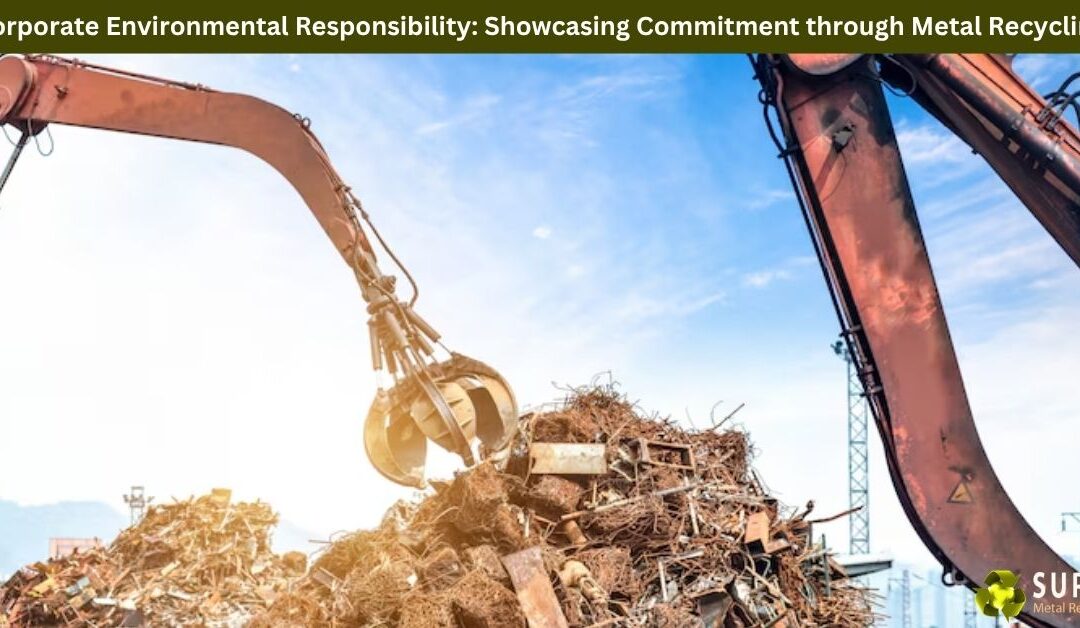Being a responsible business today isn’t just about profits and performance—it’s about purpose. More and more customers, investors, and even employees are looking to support companies that take environmental responsibility seriously. One of the most practical, visible, and impactful ways to demonstrate that commitment? Metal recycling.
Whether you’re a small manufacturing business, a large construction firm, or part of a corporate office, metal recycling can play a significant role in your sustainability strategy. In this blog post, we’ll talk about how metal recycling fits into corporate environmental responsibility (CER), why it matters, and how companies in Melbourne and beyond are making it part of their daily operations.
Why Environmental Responsibility Matters for Business
Let’s start with the basics—why should companies care?
- Reputation: People want to work for and buy from businesses that are environmentally conscious. Recycling shows you’re walking the talk.
- Compliance: Environmental regulations are tightening. Adopting metal recycling practices helps you stay ahead of the curve.
- Cost Savings: Recycling scrap metal reduces waste disposal costs and, in many cases, can even generate extra revenue.
- Investor Confidence: Many investors are now evaluating environmental, social, and governance (ESG) performance when deciding where to put their money.
In short, being eco-friendly isn’t just good ethics—it’s good business.
The Role of Metal Recycling in a Greener Business Model
Metal is one of the few materials that can be recycled endlessly without losing quality. That makes it a standout choice for businesses aiming to reduce their environmental footprint.
Whether you’re dealing with production offcuts, old office equipment, damaged fixtures, or decommissioned machinery, almost all of it contains valuable metals like:
By partnering with a reliable metal recycling service, companies can divert this material from landfill, reduce greenhouse gas emissions, and reduce the need for virgin resource extraction.
Real-World Example: Construction & Demolition Waste
Let’s say you’re a Melbourne-based construction firm working on commercial renovations. Every project generates a mountain of scrap—beams, wiring, pipes, ductwork, you name it.
Instead of sending it all to landfill, sorting and sending metal scrap to a recycler not only keeps your site cleaner and greener—it shows clients and councils that you’re serious about sustainability. Some companies even include their recycling statistics in tender documents as a selling point.
How Offices Can Get Involved Too
Don’t think metal recycling is only for industrial players. Even corporate offices can contribute:
- Recycle old computer towers, phones, and cables during IT upgrades
- Replace outdated office furniture and recycle metal parts
- Work with building managers to ensure lift components, HVAC systems, and metal fixtures are recycled during fit-outs or renovations
Even small actions can make a big impact—especially when scaled across departments or multiple office locations.
Making It Official: Sustainability Reporting
Companies today are expected to track and report on their environmental performance. Including your metal recycling efforts in annual sustainability reports, internal newsletters, or client updates can:
- Build trust with stakeholders
- Encourage staff participation
- Help quantify your environmental impact
Tracking how much metal you’ve recycled and how much CO₂ you’ve avoided is an easy win when it comes to meeting your ESG goals.
Tips for Getting Started with Corporate Metal Recycling
Here’s how to integrate metal recycling into your business operations:
- Audit Your Waste Streams
Find out where and how metals are being discarded in your daily operations. - Train Your Team
Make sure staff know how to separate metal from other waste and why it matters. - Partner with a Reliable Recycler
Work with a licensed metal recycling company that can provide proper bins, scheduled pickups, and documentation for your records. - Set Goals & Share Results
Whether you aim to recycle 100 tonnes of metal or reduce landfill waste by 50%, set measurable targets and share your progress.
More Than Just Recycling—It’s a Message
Every time your business chooses to recycle instead of discard, you’re sending a message: we care about the environment. In a competitive marketplace, that message goes a long way. It resonates with eco-conscious consumers, employees who value sustainability, and stakeholders looking for long-term value—not just short-term gains.
Something to Take With You
Metal recycling isn’t just a box to tick on your corporate checklist—it’s a smart, sustainable, and visible way to show leadership in environmental responsibility. And in today’s world, leadership like that is not just respected—it’s expected.
If you are in Skye, and looking for a metal recycling service, this is the best way to visit us.
Super Metal Recycling
345 Frankston – Dandenong Road, Dandenong South VIC 3175
(03) 9706 4909


Recent Comments